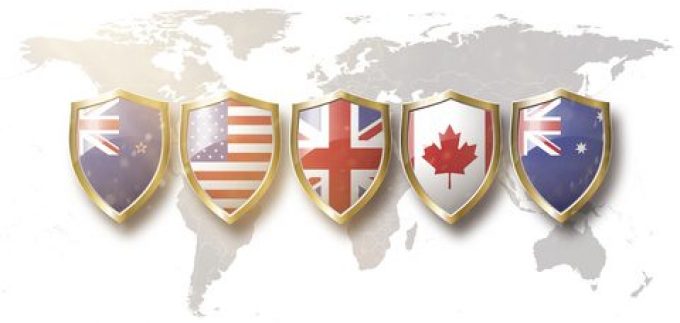Box lines in legal battle with South Korea’s antitrust body over fines
More than 20 liner operators look set for a protracted legal battle with the Korea ...

The anglosphere “Five Eyes” nations have widened their intelligence gathering to investigate supply chain collusion.
Amid soaring consumer prices and unprecedented supply chain disruption, competition authorities from the US, UK, Australia, Canada and New Zealand have formed a working group to “put firms on notice” over suspected anti-competitive behaviour, collusion, and “using Covid as an opportunity for cartel conduct”.
The UK’s Competition and Markets Authority (CMA) said the agencies were concerned that “some unscrupulous businesses could take advantage of the disruptions to engage in anti-competitive collusion and practices that cheat other businesses and ultimately consumers”.
Michael Grenfell, CMA’s executive director of enforcement, said: “While price rises can be legitimate, the CMA would be concerned if collusive anti-competitive practices are contributing to these rises or preventing prices from coming down.
“These are global issues that are best addressed together. With support and intelligence from partner agencies across the world, we can step in and take enforcement action if we find evidence of anti-competitive behaviour.”
The CMA is encouraging businesses and individuals to share information on supply chain collusion via its “cartels hotline”.
Indeed, European forwarder group Clecat has called on the EC to urgently investigate what it calls the “distorted” liner market.
Scrutiny of supply chain and logistics companies has been escalating since the Covid-crisis began and shipping lines in particular started making mind-boggling profits. These are being quickly funnelled into rampant M&A activity and vertical consolidation.
For example, the Global Shippers’ Forum has taken aim at the “unfair” container line market, claiming the block exemption regulation in Europe effectively allows behaviour which would be criminal in other industries.
In the US, the Ocean Shipping Reform Act could drastically increase regulatory scrutiny of shipping lines and help address “systemic issues contributing to the chaos at US seaports and unprecedented disruption to the ocean shipping network”, according to the National Industrial Transportation League.
Liner lobby group World Shipping Council called the act “deeply flawed”, however, and said carriers had “deployed every available ship and container to move the continuing record levels of cargo resulting from pandemic-driven US demand for imports”.
In Australia, a laundry list of complaints over congestion surcharges and detention and demurrage costs have been hurled at carriers by shippers and forwarders who have also slammed carriers’ sky-high freight rates and all-time lows in schedule reliability.
Paul Zalai, director of Australia’s Freight & Trade Alliance, claimed the shipping line market was “operating without genuine competitive tension”.
He added: “Foreign-owned shipping lines are proudly reporting multi-billion dollar profits, with many using their new-found wealth to make strategic vertical integration supply chain investments. And some are now refusing to enter contractual arrangements with third-party freight forwarders, leaving exporters and importers at their mercy as price-takers.
“The collaboration between governments is a tremendous starting point as one nation alone cannot oversee the conduct of foreign owned shipping lines and examine the full conduct of their powerful alliance activities.”
Comment on this article